#queers for your ears
Text

STARSHIP Q STAR (It's a big queer sci fi comedy audio drama)
Helloooo! Welcome to the Official Tumblr of STARSHIP Q STAR, a queer comedy fiction podcast set in the stars
It follows Co-Captains (and exes) Aurelia and Sim as they lead their extremely queer crew on a quest across the galaxy to find a new home.
Our crew are very loveable, very silly, very horny, and get themselves in some very freaking wild situations.
STARSHIP Q STAR is a full cast sci fi comedy with a majority queer cast from Melbourne, Australia. It's written by us - two co-writing queers who also happen to be a couple ourselves :)
THE ENTIRE FIRST SEASON IS OUT NOW, CHECK IT OUT!
What's that? You've already listened and want to show some love? WELL.
TO SUPPORT THE SHOW YOU CAN:
RATE - on your podcast player of choice
REVIEW - on Apple Podcasts, Podchaser, or wherever else you can! These really help!
SAY HI - ask us your burning questions or tell us your Q Star thoughts!
TIP - throw us a few dollarydoos!
MAKE - fan fic, fan art, a wee song, a cake for Dusty? We would absolutely shart our spacesuits with joy if we inspired you in some way!
SHARE! SHARE! SHARE! - spread the word by sharing our socials and telling your mates to listen!
Thank you for your love and support, making this show has been fun but sharing with you all has been absolutely AMAZING.
#audio fiction#audio drama#queer#lgbtqia+#queer romance#queer characters#starship q star#comedy#sci fi comedy#queer star trek#podcast recommendation#saphhic#enby#wlw#wlw series#gay#queers for your ears#fiction podcast
28 notes
·
View notes
Text
there are hot men in the world. you can even look at them if you want. it's true I researched it online.
#college is all abt leaving your shitty conservative hometown and realizing that cool queer guys with long hair and earrings really do exist#marina marvels at life
141 notes
·
View notes
Text
Tumblr peeps being a lil gay about Jess Mckenna compilation


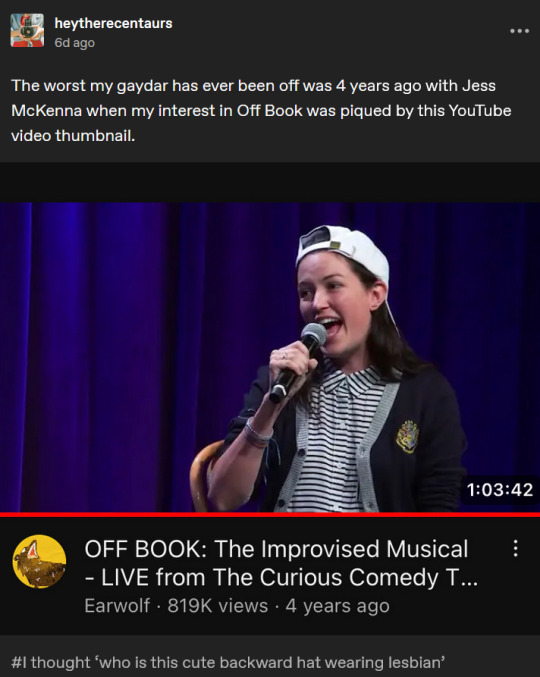




#whats that? half of these are from my own blog? Lets Not Unpack That#also for real I am trying very hard to be respectful about the degree to which I fancy the absolute pants off Jess#and if i am crossing a line i need you guys to tell me so i can step back over it#also also for real I havent actually checked your tumblrs and checked if youre women/queer and if this bothers you let me know#this is all just in good fun#jess mckenna#play it by ear
128 notes
·
View notes
Note
I would absolutely love to see examples of historical terminology? I feel like I've only scraped the surface.
So I'm going to focus mostly on 18th century English because that's what I read the most (we will dip a little into French but mostly from an English perspective). Even narrowing the focus there's still kind of a lot. Like I'm probably going to forget something cause there is so much to talk about.
Sexuality
The first thing that's important to understand is sexuality labels were action based not attraction based. This doesn't mean people didn't understand sexual attraction, they very much did, it's just that terminology was based on action not attraction. Terminology was essentially separated into men who have sex with men and women who have sex with women. It also important to remember that these terms were not exclusive to men who only had sex with men and women who only had sex with women but also applied to people who had sex with both men and women.
Men Who Had Sex With Men
Sodomy/Buggery
The terms most commonly used in formal/legal contexts were sodomite and bugger. Bugger comes from buggery and sodomite from sodomy, both of which broadly speaking referred to anal intercourse or bestiality regardless of sex/gender but was most commonly associated with sex between men. The legal definition of sodomy in English common law was as follows:
Sodomy is a carnal Knowledge of the Body of Man or Beast, against the Order of Nature; It way be committed by Man with Man, (which is the most common Crime) or Man with Woman; or by Man or Woman with a Brute Beast.
Some Kind of Penetration and Emission is to be proved, to make this Crime, which is Felony both by the Common and Statute Law, in the Agent and all that a present, aiding and abetting; also in the Patient consenting, not being within the Age of Discretion.
~ The Student’s Companion or, the Reason of the Laws of England by Giles Jacob, 1734, p239
However colloquially it was generally used to describe sex between men without the focus on Penetration and Emission.
Related to sodomy were the words sodomitical, sodomitically and sodomiting, these terms were used to describe a person, action or place that was related to sodomy (esp. sex between men) but did not necessarily constitute legal sodomy. (for examples see Trial of Martin Mackintosh, 11 July 1726, A Treatise of Laws by Giles Jacob, 1721, p165 and Trial of Thomas Gordon, 5 July 1732 respectively)
From buggery we get the presumably derogatory term buggeranto. (for an example see The London Spy, part III, published 1703)
Molly
The preferred term used by the community was molly. Rictor Norton explains in Mother Clap’s Molly House:
The early church fathers stigmatised homosexuals as molls or sissies, and secular society called effeminate men molly-coddles and homosexuals mollies; having no other self-referring terms except the even less appealing Sodomite or Bugger, gay men transformed Molly into a term of positive self-identification, in exactly the same way that the modern subculture has transformed Gay (which derived originally from ‘gay girl’, meaning a female prostitute) into a term of pride and self-liberation.
Molly (plural mollies) was a noun:
Sukey Haws, being one Day in a pleasant Humour, inform’d Dalton of a Wedding (as they call it) some Time since, between Moll Irons, and another Molly,
~ James Dalton’s Narrative (1728)
Molly/mollied/mollying could also be a verb:
I was going down Fleet-Street, I was just come out of Jail. This Man, the Prosecutor, is as great a Villain as ever appear'd in the World. I was coming down Fleet-Street, so Molly says he; I said, I never mollied you. My Lord, I never laid my Hand upon him, nor touch'd him; I never touch'd the Man in my Life.
~ Trial of Richard Manning, (17 January 1746)
And mollying could be used as an adjective:
But they look'd a skew upon Mark Partridge, and call'd him a treacherous, blowing-up Mollying Bitch, and threatned that they'd Massacre any body that betray'd them.
~ Trial of Thomas Wright, (20 April 1726)
A molly house was house or tavern that catered to mollies. Molly houses would typically serve alcohol and often had music and dancing. Usually there was a room where mollies could have sex known as the chapel. (see Trial of Gabriel Lawrence, 20 April 1726 for an example of the term molly house in use, Trial of George Whytle, 20 April 1726 and Trial of Margaret Clap, 11 July 1726 for details on the chapel, and Trial of William Griffin, 20 April 1726 for molly houses taking lodgers.)
Mollies also had their own slang which I have a separate post on if you want to learn more about that.
Euphemisms
Euphemisms for men who had sex with other men included Back Gammon Player and Usher, or Gentleman of the Back Door. To navigate the windward passage was a euphemism for anal sex. (see The Classical Dictionary of the Vulgar Tongue, 1785.)
References to the classics were also sometimes used as euphemisms. A common example is Zeus's male lover Ganymede. (for an example see Public Advertiser, 4 Sept 1781)
Anal Sex Roles
The roles in anal sex were known as pathic (sometimes spelt Pathick) or patient (bottom) and agent (top). I have a longer post about the cultural perception of roles in anal sex if you're interested in that sort of thing.
Other Terms for Men Who Had Sex With Men
Pederast: In the 18th century the word pederasty was used synonymously with sodomy and did not denote age simply sex. An Universal Etymological English Dictionary (1726) defines “A pederast” as “a Buggerer” and “Pederasty” as “Buggery”.
Catamite: In particular catamite often, but not always, denoted the younger partner in a male-male sexual relationship. It was sometimes used to specifically describe boys but it was sometimes used it to describe men. Cocker's English Dictionary (1704) defines catamite as "a boy hired to be used contrary to nature, for Sodomy" but The New Royal and Universal English Dictionary (1763) defines catamite simply as "a sodomite." Catamite was also sometimes used as synonym for pathic.
Gomorrean: Like sodomite this one comes from the biblical story of Sodom and Gomorrah. However it wasn't nearly as commonly used. (for an example see The London Chronicle, 4 - 6 Jan 1757)
Madge Cull: This one came about towards the end of the century. It comes from a combination of Madge a slang term for “the female genitals” and Cull slang for “a man, a fellow, a chap.” (see Green’s Dictionary of Slang)
Women Who Had Sex With Women
Sodomy
While English common law did not consider sex between women sodomy this was not true across Europe. (see Louis Crompton, The Myth of Lesbian Impunity Capital Laws from 1270 to 1791) Most English colonies followed English common law however this aspect of the law was not unanimously agreed upon.
In 1636 Rev. John Cotton proposed to the General Court of Massachusetts a body of laws that would define sodomy as "a carnal fellowship of man with man, or woman with woman". (Crompton, p19)
In a 1779 bill submitted to the Virginia Assembly on crime and punishment Thomas Jefferson explicitly includes sex between women. He quotes Henry Finch's Law, or, a Discourse Thereof; in Four Books which defines sodomy as "carnal copulation against nature, to wit, of man or woman in the same sex, or of either of them with beasts." Jefferson disagrees with Finch on including bestiality because it "can never make any progress" and "cannot therefore be injurious to society in any great degree". However he doesn't dispute the inclusion of sex between women. He proposes that the punishment for sodomy be "if a man, by castration, if a woman, by cutting thro’ the cartilage of her nose a hole of one half inch diameter at the least." (see A Bill for Proportioning Crimes and Punishments in Cases Heretofore Capital, 18 June 1779)
While there was some disagreement on the legal definition of sodomy, colloquially if someone was talking about sodomy they were probably talking about sex between men. A clarification would likely be added if they were talking about women e.g. female sodomite.
Tribade
Coming from French tribade was defined in The New Pocket Dictionary of the French and English Languages (1781) as a "female sodomite". Tribade was used in English at least as early as 1585. It originally comes from the ancient Greek word τρίβειν meaning "rub" and is a reference to tribadism. The word tribadism however did not come into use until the 19th century. (see OED)
Sappho was a famous Tribade; as appears by the Testimonies of all the old Poets, but particularly from that beautiful Ode (addressed to one of the Ladies, with whom she was in Love) which Longinus has preserved, and which has ever been so highly esteemed by all the Critics.
~ William King, The Toast (1732)
Sapphic
Sapphic (sometimes spelt sapphick) originally meant "relating to, characteristic of, or reminiscent of Sappho or her writings". (OED) It became a term for sexual activity and sexual desire between women in reference of course to the accent Greek poet Sappho's love poems addressed to women. In fact in 18th century England Sappho was often cited as being the first woman who had ever had sex with another women.
Sappho, as she was one of the wittiest Women that ever the World bred, so she though with Reason, it would be expected she should make some Additions to a Science in which Womankind had been so successful: What dose she do then? Not content with our Sex, begins Amours with her own, and teaches the Female World a new Sort of Sin, call’d the Flats, that was follow’d not only in Lucian’s Time, but is practis’d frequently in Turkey, as well as at Twickenham at this day.
~ Satan’s Harvest Home (1749)
Sapphic is an adjective:
Look on that mountain of delight,
Where grace and beauty doth unite,
Where wreathed smiles must thrive;
While Strawberry-hill at once doth prove,
Taste, elegance, and Sapphick love,
In gentle Kitty *****.
~ A Sapphick Epistle (1778)
Sapphism is a noun for the act or desire:
it has a Greek name now & is call’d Sapphism, but I never did hear of it in Italy where the Ladies are today exactly what Juvenal described them in his Time – neither better nor worse as I can find. Mrs Siddons has told me that her Sister was in personal Danger once from a female Fiend of this Sort; & I have no Reason to disbelieve the Assertion. Bath is a Cage of these unclean Birds I have a Notion, and London is a Sink for every Sin.
~ Hester Thrale Piozzi, Thraliana, 9 Dec 1795
Sapphist is a noun for the person:
Nature does get strangely out of Fashion sure enough: One hears of Things now, fit for the Pens of Petronius only, or Juvenal to record and satyrize: The Queen of France is at the Head of a Set of Monsters call’d by each other Sapphists, who boast her Example; and deserve to be thrown with the He Demons that haunt each other likewise, into Mount Vesuvius.
~ Hester Thrale Piozzi, Thraliana, 1 April 1789
Lesbian
Originally meaning "a native or inhabitant of the Greek island of Lesbos" (OED) this is another reference to Sappho who was from Lesbos.
However, this little Woman gave Myra more Pleasure than all the rest of her Lovers and Mistresses. She was therefore dignified with the Title of Chief of the Tribades or Lesbians.
~ William King, The Toast (1732)
Tommy
Tommy (plural tommies) is a fairly uniquely 18th century term as it doesn't seen to have been used earlier and is rarely used later. Speculatively it may be etymologically linked to tomboy which dates back to 1656. (OED)
Women and Men, in these unnat'ral Times,
Are guilty equal of unnat'ral crimes:
Woman with Woman act the Many Part,
And kiss and press each other to the heart.
Unnat'ral Crimes like these my Satire vex;
I know a thousand Tommies 'mongst the Sex:
And if they don't relinquish such a Crime,
I'll give their Names to be the scoff of Time.
~ The Adulteress (1773)
Euphemisms
The game of flats, game at flats or simply flats was a euphemism for sex between women. Rictor Norton explains it was “a reference to games with playing cards, called ‘flats’, and an allusion to the rubbing together of two ‘flat’ female pudenda.” (Mother Clap’s Molly House, p233)
I am credibly informed, in order to render the Scheme of Iniquity still more extensive amongst us, a new and most abominable Vice has got footing among the W—n of Q—–y, by some call’d the Game at Flats;
~ Satan’s Harvest Home (1749)
In a diary entry Hester Thrale Piozzi repots "’tis a Joke in London now to say such a one visits Mrs. Darner". This was in reference to the rumours of sapphism that surrounded the sculptor Anne Damer. Piozzi goes on to recored a poem concerning Anne Damer's relationship with actress Elizabeth Farren that was being passed around her social circle:
Her little Stock of private Fame
Will fall a Wreck to public Clamour,
If Farren herds with her whose Name
Approaches very near to Damn her.
~ Hester Thrale Piozzi, Thraliana, 9 Dec 1795
(see ‘Random Shafts of Malice?': The Outings of Anne Damer by Emma Donoghue for more on the rumours surrounding Anne Damer)
Absence of Sexual Attraction
With 18th century sexuality labels being action based rather than attraction based we have no exact equivalent for the word asexual. Just as we have no exact equivalent for the word homosexual. There was of course words for people who had never had sex (virgin, maiden) and words for people who planned on never having sex (celibate).
However this doesn't mean 18th century people had no way of talking about a lack of sexual attraction. The Chevalière d'Eon in a letter to the Comte de Broglie talks of "the natural lack of passion in my temperament, which has prevented my engaging in amorous intrigues”. Her lack of sexual interest became part of her self-styling as La Pucelle de Tonnerre (The Maiden of Tonnerre) after Joan of Arc who was known a La Pucelle d'Orléans (The Maiden of Orleans). (see D’Eon to the Comte de Broglie, 7 May 1771. Translated by Alfred Rieu, D'Eon de Beaumont, His Life and Times, p141; also for examples of the English press calling her La Pucelle d'Orléans see the Public Advertiser, 4 May & 11 June 1792)
The Third Sex/Gender
In the 18th century intersex people were predominantly referred to as hermaphrodites (while it is now considered offensive I will use it in this post as I think there is educational value in understanding it's historical use). In The Mysteries of Conjugal Love Reveal'd Written in French Nicholas de Venette explains that intersex people were permitted to "chuse either of the two Sexes". However if they strayed from the chosen role of man or woman they could be "punished like a Sodomite". (p465)
In the 18th century the words sex and gender were used somewhat synonymously. The word hermaphrodite along with third sex and third gender were used to describe not only intersex people but also gender nonconforming endosex people. Your clothes, interests, speech patterns and the way you move were all considered part of your sex.
Consider The Fribbleriad by David Garrick. Garrick was an actor known for playing fops. In the poem he portrays his critics as a group of effeminate men who were angry at him for they way he mocked them in his work:
In forty-eight— I well remember—
Twelve years or more— the month November—
May we no more such misery know!
Since Garrick made OUR SEX a shew;
And gave us up to such rude laughter,
That few, ‘twas said, could hold their water:
For He, that play'r, so mock’d our motions,
Our dress, amusements, fancies, notions,
So lisp’d our words and minc’d our steps,
He made us pass for demi-reps.
Tho’ wisely then we laugh’d it off,
We’ll now return his wicked scoff.
"OUR SEX" is understood to be the sex of effeminate men. A sex distinct from that of acceptable manhood or womanhood which is defined by their "dress, amusements, fancies, notions" as well as the way they "lisp'd" their words and "minc’d" their steps.
John Bennett in his popular conduct book Letters to a Young Lady on a Variety of Useful and Interesting Subjects advises young women against wearing riding habits warning that they would "wholly unsex her". The Guardian reports that some people had "not injudiciously stiled" the riding Habit "Hermaphroditical". And The Spectator complains about riding Habits calling them an "Amphibious Dress" and describing women who wear them as "Hermaphrodites" and a "Mixture of two Sexes in one Person". (The Guardian, 1 September 1713, reprinted in The Guardian edited by John Calhoun Stephens, p 486; The Spectator 19 July, 1712)
The word amphibious is one that comes up a lot in the 18th century in regards to gender. A dictionary of the English language (1794) defines amphibious as "living in two elements". John Bennett describes effeminate men as "poor amphibious animals, that the best naturalists know not under what class to arrange."
Alexander Pope famously called Lord Hervey an "Amphibious Thing!" that acts "either Part". Lady Mary Wortley Montagu said that "this world consisted of men, women, and Herveys". And William Pulteney describes him as "delicate Hermaphodite", "a pretty, little, Master-Miss" and "a Lady Himself; or at least such a nice Composition of the two Sexes, that it is difficult to distinguish which is most predominant." (Alexander Pope, Epistle to Dr Arbuthnot; The Letters and Works of Lady Mary Wortley Montagu edited by Lord Wharncliffe, v1, p95; William Pulteney, A Proper Reply To a late Scurrilous Libel)
Macaroni, amazon, virago, fop, petit-maitre, coxcomb, amphibious, unsex, dandy, namby-pamby, he-she things, lady-fellow, master-miss, fribble, dubious gender. These were all terms to describe gender nonconforming people. Many of these terms were used in a derogatory way but not all of them were intended as such and some GNC people identified with some of these terms. For example a young Charles James Fox described himself as a petit-maitre in his 18 Oct, 1763 letter to his father. While at Eton, which he found "more disagreeable than I imagined", he laments "you may see the petit maître de Paris is converted into an Oxford Pedant."
Many of the people who were labeled as third sex/gender would not necessarily have identified as such. With even the smallest deviation from the norm giving rise to the label. Including one 1737 article which claimed that "Ugly Women" may "more properly be call'd a Third Sex, than a Part of the Fair one". (Common Sense, or The Englishman's Journal, 28, Feb)
Gender Presentation Through Gendered Language
While there is no real equivalent for the word transgender in 18th century English this doesn't mean people had no way of expressing their gender though language. People referred to themselves as being men, women, both or neither. Gendered names, titles and pronouns were also used to express one's gender.
The Chevalière d'Eon
D'Eon asserted her gender identity though gendered names, pronouns and titles. When she started openly living as a women she changed her first name to Charlotte making her full name Charlotte-Geneviève-Louise-Auguste-André-Timothée d’Eon de Beaumont. However she preferred the name Geneviève and would often write her name simply Geneviève d'Eon.

[Admission-ticket for Geneviéve d'Eon, with red seal; c.1793; via The British Museum (C,2.3)]
D'Eon used she/her pronouns. Here is an example of her using she/her pronouns for herself when writing in third person:

[Invitation from the Chevalière d’Eon to Lord Besborough; c.1791; via The British Museum (D,1.268-272)]
As she was French d'Eon used French titles even in English. She would sometimes use the title Mademoiselle (a title for unmarried women) but other times she used Chevalière. In 1763 she was awarded the Cross of Saint-Louis and with that came the masculine title Chevalier. When she started openly living as a women she switched from the masculine Chevalier to the feminine Chevalière. Perhaps the most fun example of her using the feminine Chevalière is the sword she gifted to George Keate which was inscribed: "Donné par la Chevalïere d’Eon à son ancïen Amï Geo: Keate Esquïre. 1777"


[The Chevalière d’Eon’s Sword, hilt: c.1700s, blade: c.mid-1600s, inscription: c.1777, photos via the Royal Armouries Museum (IX.2034A)]
Public Universal Friend
The Public Universal Friend claimed to be a genderless spirit sent by god resurrected in the body of Jemima Wilkinson after she had succumbed to a fever in 1776. The Public Universal Friend gained a small but devoted group of followers that understood and respected the Friend as a genderless being. When one traveler asked for directions to "Jemima Wilkinson's house" a women replied that "she knew no such person; "the friend" lived a little piece below." (A Ride to Niagara in 1809 by Cooper Thomas, p37)
For the most part followers of the Public Universal Friend avoided using gendered pronouns for the Friend*. However they did not use gender neutral pronouns (such as they/them) but instead avoided third person pronouns completely. You can see an example of the sort of gender neutral language used for the friend in this letter from Sarah Richards to Ruth Pritchard:
Dear Ruth
This is to be a Messenger of my Love to thee. Hold out faith and patience.
Thy letter was very welcome to me. I want Thee should make ready to come where the Friend is in this Town. The Friend has got land enough here for all that will be faithful & true. Dear Ruth, I will inform thee that Benedict has given the Friend a Deed of some land in the second Seventh in the Boston perhemption, which Deed contains five lotts and the Friend has made use of my name to hold it in trust for the Friend, and now I hope the Friends will have a home, and like wise for the poor friends and such as have no helper, here no intruding feet cant enter.
Farewell form thy Affectionate Friend, Sarah Richards
~ Sarah Richards to Ruth Pritchard, March 1793 (printed in The Unquiet World by Frances Dumas, p166)
* In contrast to followers that avoided gendered pronouns completely ex-follower Abner Brownell claimed that some followers called the Friend "him." (see A Mighty Baptism edited by Susan Juster & Lisa MacFarlane, p28)
It's impossible to seperate the Friend's genderlessness from the claim that the Friend was a messenger sent by god resurrected in the body of Jemima Wilkinson. The followers of the Public Universal Friend used genderless language as a way to indicate their religious devotion. In "Indescribable Being" Theological Performances of Genderlessness in the Society of the Publick Universal Friend, 1776-1819 Scott Larson explains:
The language one chose to describe the Friend indicated whether one was part of the community of the saved or part of the "wicked world." Conversely, community members and followers used the name "the Friend" quite deliberately, and that use became a marker of belonging. This sense of belonging could last longer than the community itself did. Huldah Davis, who was a child when the Friend left time in 1819, shared her memories of the Friend in 1895. In her recollections, Davis refers to Jemima Wilkinson but is careful to note that her parents, followers of the Friend, always referred to "the Friend," and Davis uses the community's language through most of her account. Language choices could also mark points of entering and exiting the community, as the apostate and denouncer Abner Brownell refers to "The Friend" in diary entries written during the time of his membership in the Friend's community but then calls "her" "Jemima Wilkinson" in his later published denunciation, Enthusiastical Errors, Described and Decried.
Mollies and Maiden Names
Gendered language could be used to express queer identity without necessarily expressing a transgender identity. Mollies took on feminine sobriquets known as maiden names. A maiden name was a typically made up of a combination of either a feminine title or name (molly and variations being the most popular) and often a reference to something notable about the individual. It could be a reference to their profession for example Orange Mary was an orange merchant, Dip-Candle Mary was a tallow chandler and Old Fish Hannah a fisherman. It could be a reference to where they were from for example Mrs. Girl of Redriff was presumably from Redriff. Some maiden names were somewhat suggestive like Miss Sweet Lips or Molly Soft-buttocks.
(Sources for maiden names: Orange Mary, Dip-Candle Mary, Old Fish Hannah, and Mrs. Girl of Redriff are mentioned in James Dalton's Narrative; Miss Sweet Lips is mentioned in The Phoenix of Sodom by Robert Holloway; Molly Soft-buttocks is mentioned in Account of the Life and Actions of Joseph Powis)
While mollies took on these feminine names, they more often than not still lived as men. Most mollies wore men's clothes, used he/him pronouns and referred to their partners as their husbands not their wives. (for the use of husband in the molly subculture see the trial of Martin Mackintosh, 11 July 1726 and the trial of George Whytle, 20 April 1726)
However some mollies did wear women's clothes and used (at least some of the time) feminine pronouns. Take for example Princess Seraphina who during the trial of Thomas Gordon (5 July 1732) is described by Mary Poplet as follows:
I have known her Highness a pretty while, she us’d to come to my House from Mr. Tull, to enquire after some Gentlemen of no very good Character; I have seen her several times in Women’s Cloaths, she commonly us’d to wear a white Gown, and a scarlet Cloak, with her Hair frizzled and curl’d all round her Forehead; and then she would so flutter her Fan, and make such fine Curties, that you would not have known her from a Woman: She takes great Delight in Balls and Masquerades, and always chuses to appear at them in a Female Dress, that she may have the Satisfaction of dancing with fine Gentlemen. Her Highness lives with Mr. Tull in Eagle-Court in the Strand, and calls him her Master, because she was Nurse to him and his Wife when they were both in a Salivation; but the Princess is rather Mr. Tull’s Friend, than his domestick Servant. I never heard that she had any other Name than the Princess Sraphina.
On a final note I would also recommend looking up many of these terms in the Oxford English Dictionary (you might be able to access this for free through your library) and Green's Dictionary of Slang both of which include multiple examples in use.
#sorry this took so long I couldn't resist making it far too long#if you want me to talk your ear off just ask me about 18th century queer language its my favourite topic#queer history
146 notes
·
View notes
Text
Saw her in a suit today and I nearly came in my jeans damnit
I want her fucking me in that outfit, want her strap straining against her pants and to see her hurry to pull it out from her waistband after rushing us both into a locker room between classes. Need her shoving me against the wall and taking her strap deeper into my aching pussy, need her hips snapping with each thrust as she murmurs in my ear about how much of a slut i am for her (because who wouldn't be, she could dom me in that fit anyday damnit)- about how good I am for taking mommy's dick like a good girl.
I can't stop thinking about her growling, groaning as my cunt clenches around her dick, her biting my chest and leaving raw angry marks on my tits so she can admire them after class when she's fucking me into the mattress. Need her holding my leg up with on hand while the other braces herself, and her strap plunges into me, feels how sopping wet I am for her.
Need her to fuck me so bad, i'm shaking rn
#queer shenanigans and all that#pin me against a wall#raise your hand if you think fems groaning and breathing heavy in your ear is hot#wlw thoughts#cuz damn- bbg got me wetter than a goddamn lake n my underwear be soaked through like it's a rainforest down there phew 🥵#queer#queer ns/fw#mommy k!nk#domme mommy#wlw pining#wlw smut#wlw nsft#wlw ns/fw#wlw love#wlw#sapphic stuff#sapphic smut#sapphic joy#sapphic love#sapphic yearning#sapphic ns/fw#sapphic nsft#sapphic#queer smut#queer thoughts#queer love#queer stuff#queer nsft#queer brainrot#suit kink
126 notes
·
View notes
Text
Going off that last post
Anyone who has shaved their head for the first time recently or just got their first short haircut
Put sunscreen on your head
Put sunscreen on the back of your ears
Put sunscreen on the back of your neck
Your hair isn't there to protect this area from the sun anymore and sunburns there suck so very bad.
#will says#trans advice#trans masc stuff#baby butch#trans man#queer#gnc#punk#puppy punk#also the skin cancer#but in the near future that ear sun burn will ruin your life
386 notes
·
View notes
Text
the concept of an ‘unauthorised protest’ is so fucked. we have to ask permission to disagree?? to have input in how our lives are run??
the right to protest MUST BE PROTECTED.
#i’m ranting again#nsw cops claiming the snap rallies against police participation at mardi gras were ‘unauthorised’#what you think the queer people rallying AGAINST YOU are gonna ask for YOUR PERMISSION#grow the fuck up and get the fuck out#anyway the lack of cheering as the cops marched past at sydney mardi gras was music to my ears#cope and seethe piggies#cops out of pride#pride in protest#this is australia specific but also all people should protect the right to protest
6 notes
·
View notes
Text
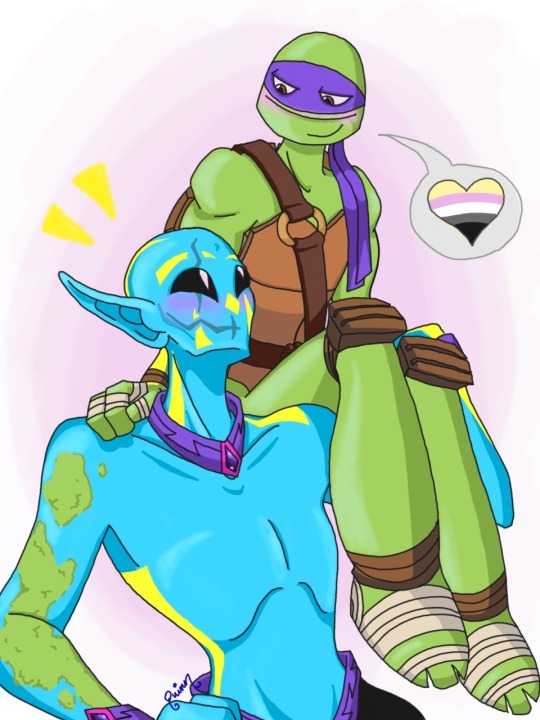
happy pride month! 🏳️🌈 this one goes out to all our queerplatonic folks out there. your identities and relationships are valid!
made with the Draw With Me app via my beautiful spouse, who gifted me an ipad and stylus for my birthday. love you, nifey! 🩷
#tmnt 2012#donatello#tmnt oc#the voice in your ear#erkleid naera#teenage mutant ninja turtles#tmnt donnie#lgbtqiia+#pride month#another voice series#queerplatonic#queer platonic love#queer platonic relationship#ao3 another voice
21 notes
·
View notes
Text
it really hits different when someone, whether its a celebrity or just someone you work with, is a happily out lesbian. obviously im happy for any queer person that comes out but the majority of those who do, at least who i have encountered, are either gay men or bi women. and even tho we’re a part of the same community i still always feel a little isolated and different from them. the majority of my friends are queer but i have zero lesbian friends and it actually really upsets me. when i find out someone is queer im obviously happy but when i find out theyre lesbian i get so happy i wanna cry. its just different.
#im actually full on crying now after i just wrote that goddamnit i just washed my face#this is literally just about a hair stylist on tiktok i love that i knew was queer but i assumed she was bi but just learned shes a lesbian#and she dyed her hair pink and orange and wore a pink and orange dress and earrings today for pride and now im crying#this post is for lesbians#do not reply or rb and tag something related to being bi or a gay man or something itll piss me off this is for LESBIANS#i mean you can rb if youre not lesbian but just dont make it about yourself#i rbd a post that just said ‘lesbians 🩷🧡’ and someone rbd it and said ‘bisexual 💜💙’ and i know#they meant well but it made me unreasonbaly upset#i just sometimes feel like there are a million gays and bis and like 10 lesbians including me#lesbian#pride month#lgbt#it actually makes me cry that i have no lesbian friends#i mentioned it to my bi friend once and granted we were kinda drunk but she just said ‘are we not good enough for you’ and we laughed#but fuck it really makes me sad like im fully crying rn thinking about it#this is so stupid
16 notes
·
View notes
Text
I think something that really stings to hear, but is very important to learn, is that there is no such thing as inherent solidarity. There is no such thing as inherent community.
Community and solidarity are choices that need to be made, and require more than just lip service. They are acts that you take, and acts that you have to take consistently. There is no such thing as an inherent ally, to any cause. There is no such thing as an inherent kindred spirit, no matter the identity. You have to make the choice to be an ally, to be a friend, to be a sibling, to those around you.
Even things as 'solid' as race and ethnicity and gender and sexuality are not proof of some unbreakable tie between those who happen to share those labels. People fool themselves and others into thinking that just because you're xyz that means you're inherently part of some vague and tightknit community. As is by virture of just existing you are providing some form of meaningful solidarity and support. And that's just not true.
Ofc the reverse is true. It is very dangerous to assume that just because you have overlapping identities with another person, that means they are your friend, or that they have your best interests at heart, or that they will support you or defend you when you need it. They need to make the choice, you need to make the choice, to take action to actually form a community.
This is why so many times "communities" just feel like a bunch of people sitting in the same room. Because that's all they are. You need to actually take action, actually take steps to build something that's real and solid and helpful.
#i'm specifically thinking about the queer community#if you can call it that#just because someone is queer does not make them your friend or your ally#as a black queer man i know this intimately#for black queer women i know that it is even worse (because i was one for a while and because i have ears and eyes)#i'm not sure why this is on my mind but it is#kirby.txt
4 notes
·
View notes
Text
have been reading fic & thinking abt my relationship to fic, which is of course also among other things a mirror of my relationship to my own psyche, and like—i think all the discourse abt its being ~internalized misogyny~ to mostly/entirely read m/m is not ultimately, whatever the truth of it, all that helpful, either to readers or to Women! but of course that doesn't stop me from feeling weird guilt abt the fact that i don't read more f/f than i do, because if there's anything i love to do, it's feel unhelpfully bad abt myself on the slimmest of pretexts…
however! i did end up reading some f/f earlier, specifically transfem f/f, and it got me thinking—basically what i'm usually mostly reading fic for is the romance/sex, right? like, don't get me wrong, i love when a fic gives me a gorgeous double helix of, like, casefic and romance twisted together, that's ideal, but fundamentally most of the time the feeling up is what i sat down at the table to eat. so in a complex aegosexual way it's a fantasy i'm—not projecting onto, exactly, i don't want to be one of the people in it; but, like, lurking in the wings of with eyes big love-crumbs, to steal a phrase from a relevantly-named poet. :) and so it's no wonder that mostly i don't want to read cisfemme4cisfemme stuff, because that's not a dynamic that feels like it has any room for me, or even like i'm particularly welcome in the room. but like. if it's trans women? i'm there, i love that for them and for me. if there's a butch? i might get tripped up by our differing lenses on gender feelings and stub my toe a little but even so i'm probably here for it. (thinking here abt that one butch/femme geraskier ~cisswap which is, like, a gorgeous bruise i keep periodically pressing. <3)
so really it's just like. shocker: i'm not personally moved by fantasies abt romance which feature conventionally feminine cis women whom i don't personally find relatable or sexually desirable! and when i put it like that, it really instantly dissolves the weird useless discourse-induced guiltgunk. like. give me a woman who's, idk, tall and charismatic and strong and clever and talented at something (though honestly it's like that siken revised tweet, a lot of those characteristics are ultimately negotiable!), like women i've historically crushed on irl, and then give me a pairing for her that's like. another woman who's also enough of those things, or a man who's—honestly the kind of m/f i'm open to would be its own whole post bc holy shit am i fussy, it very much does exist but for now let's just stick a pin in that one—or somebody nonbinary, which… idk that i've ever actually seen nb/f in fic? i'm sure it exists! but i'm not sure it exists in any fandoms i've been into. pondering the question did get me really thirsty for a good 'farmgirl (of the luke skywalker variety) is absolutely stunned-and-ringing-like-a-struck-bell captivated by confident flamboyantly genderqueer love interest (example wanted)' dynamic, though…
#(this is entirely unrelated to the actual topic but every time i use a possessive to modify a gerund bc it's a verbal noun it's like#pls hold‚ time 2 decide whether i'd rather do the esoteric thing—'its being'—and have most ppl think i'm getting it wrong#or do the demotic thing—'it being'—and *know* in my own secret heart i'm getting it wrong#and both scenarios feel Bad! so it really is just lose-lose every time it comes up… a sad situation for a gerund lover like yrs truly. 😔)#(also yes what is 'wrong' when it comes 2 language anyway but like. you know what itches your ears and i know what itches mine.#…& obvs what itches mine somehow does NOT include (mis)using 'itch' as a transitive verb for comedically colloquial effect. shrug emoji!!)#anyway none of this is remotely groundbreaking or even unusual but. soothing 2 me to lay it out like this.#fannish things#i guess also#aut fieri uolo aut futuere#and no‚ the world definitely did not need >500 words retreading the same ground many other ppl have already trodden#however. what is a blog for if not to house long-winded unnecessary posts no one but the author (if that) really needed.#in conclusion anything i say abt My Relationship 2 Fic is really always a diptych with that anecdote abt the woman who called up queer bars#just to know there was a space out there where freedom and joy existed‚ and brush the edge of it‚ just a little#like am i personally embodying/visible as much of what i'm deeply emotionally bound up with? no.#is it nonetheless/therefore hugely important to me to see those possibilities stretched out before me like a far green field? sure is!!
10 notes
·
View notes
Photo
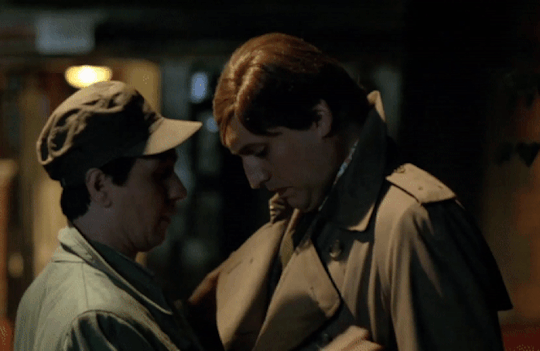
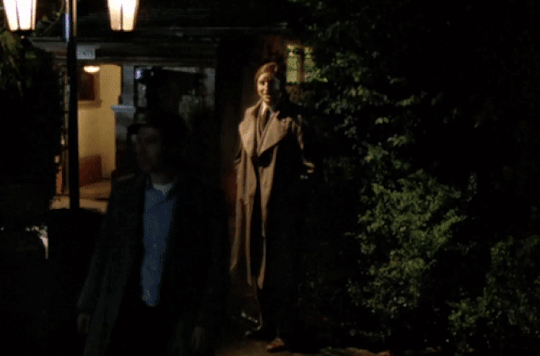



Alfred Molina as Kenneth Halliwell in Prick Up Yours Ears
#kenneth halliwell#alfred molina#prick up your ears#prick up your ears (1987)#lgbt#gay#molinaedit#doc ock#queer cinema#puye#puyeedit
62 notes
·
View notes
Note
gayass
I! HAVE! NO! FUCKING! CLUE! WHAT! YOU! ARE! TALKING! ABOUT! HEART! <3!
#GO KISS YOUR TYRANT HE HAS ANOTHER GIFT FOR YOU#coming at ME ??????#why don't you go back to ur loving partners???? gibbys been asking for you all day and it's rude to ignore king's orders :|#and odozeir talked my fuckin ear off about a nice dinner he was hoping to take you on since he's been particularly impressed with you#i heard talk of a summer wedding#QUEER!#ask.txt#2001-aso
9 notes
·
View notes
Note
Why do the young Mitch photos look like those pics gay people post where they’re saying they were very obviously gay as children? (Not implying anything about real life Mitch, just the version that exists in fandom and my head)
skdfjshdkfhdskh you're so right baby mitch + current mitch as a continuum of that has always been a bubbly energetic flamboyant soulful and expressive creature!! Mitch is so confusing vibeswise because he's like a perfect superposition of "really straight hockey dudebro" and "I know multiple Twinks (and i mean twinks not the internet's version of them) who look and act exactly like this."
on a slightly more serious note the second half of the mitch vibes is imo a big reason of why the more bullheaded boomer types hate him, they see that and the subconscious homophobic bias kicks in (the word "soft" is a red flag... -_- ) when will this twinkphobia end? that beautiful princess is the living soul and beating heart of the leafs and we cannot survive without him
#also this is a diss on boomer leafsfans (derogatory)'s gaydar#because like. auston is JUST as clockably queer as mitch. possibly more so#(sidenote they're like 99% odds on both straight im talking fandom spaces)#but auston's high-pitched vocal fry and earrings and pornstache obviously do NOT register nearly as queer as like.#mitch being skinny and talkative#to these guys anyway. it's okay auston *I* saw your vocal fry and earrings and pornstache#mitch marner#asks
14 notes
·
View notes
Text
Who wants to bet the people saying “sex at pride is invalidating asexuals” are just aphobes and exclusionists trying to make us look bad
#like not to No True Scotsman up in here#but I have NEVER heard this from inside the ace community#we might be uncomfortable at pride but not always!#SEX POSITIVE ACES EXIST#asexuality#I’m here I’m queer I’m yelling in your ear
73 notes
·
View notes
Text
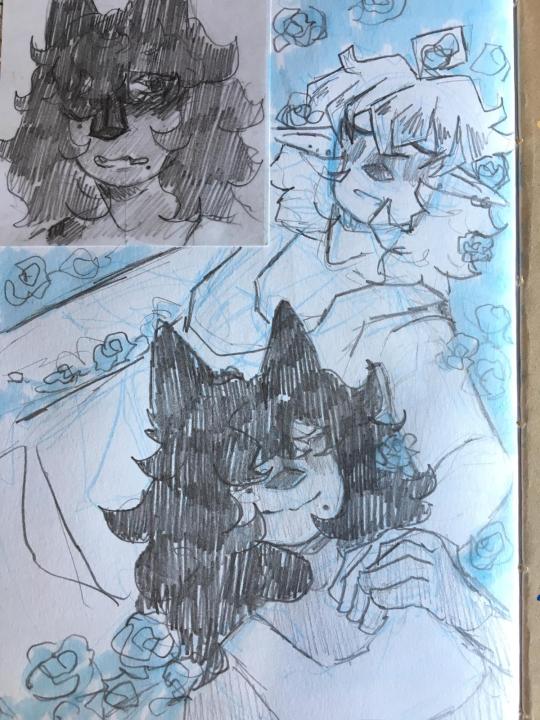


More of my ocs >:) I have been somewhat obsessed about those two recently, don't mind me (I have a small comic about them planed :> )
I really like their relationship dynamic!
#they are very queer your honor#yes Nameless is taller that rafael but it's hard to see because of his ears#yeah ocs!#my art#oc: nameless#oc: rafael#sketchbook#(i have so much angst ideas for them)#(but I love them too much to make them go through so much)
8 notes
·
View notes